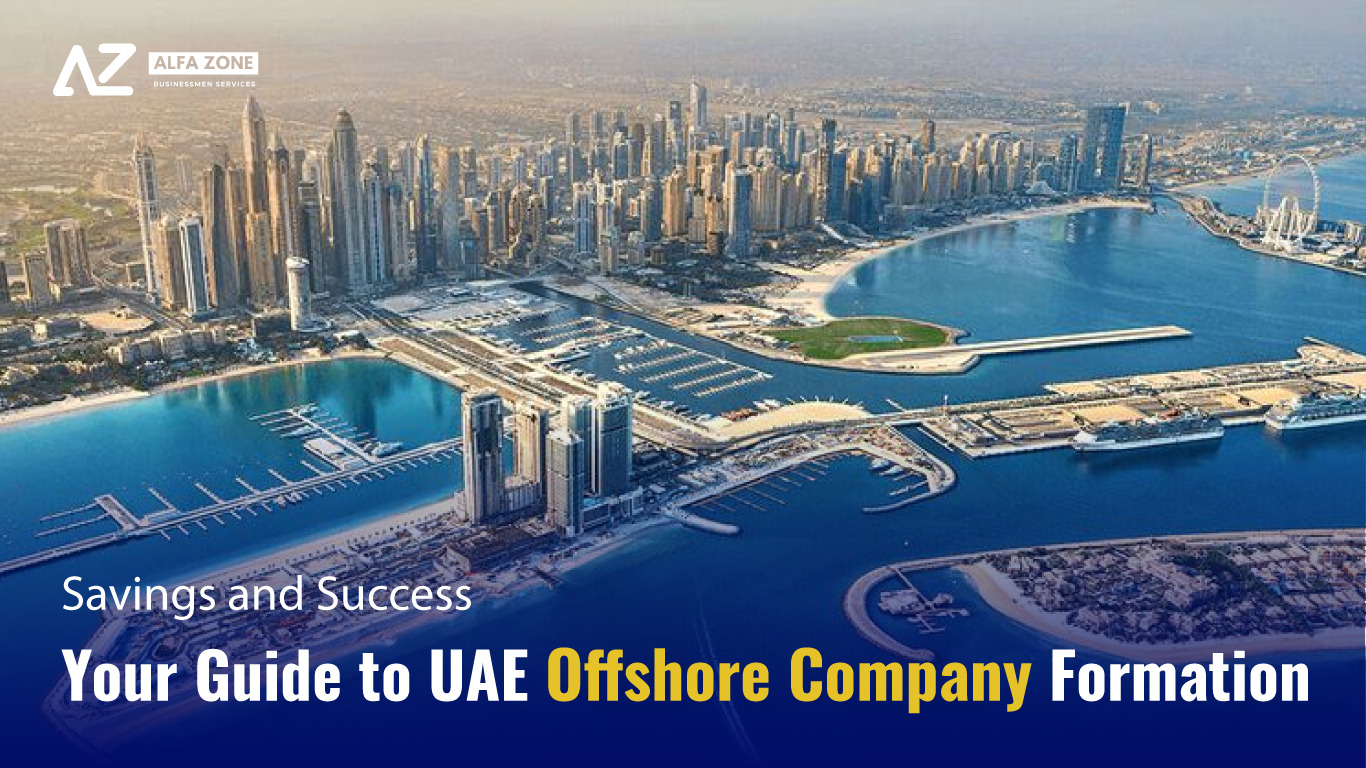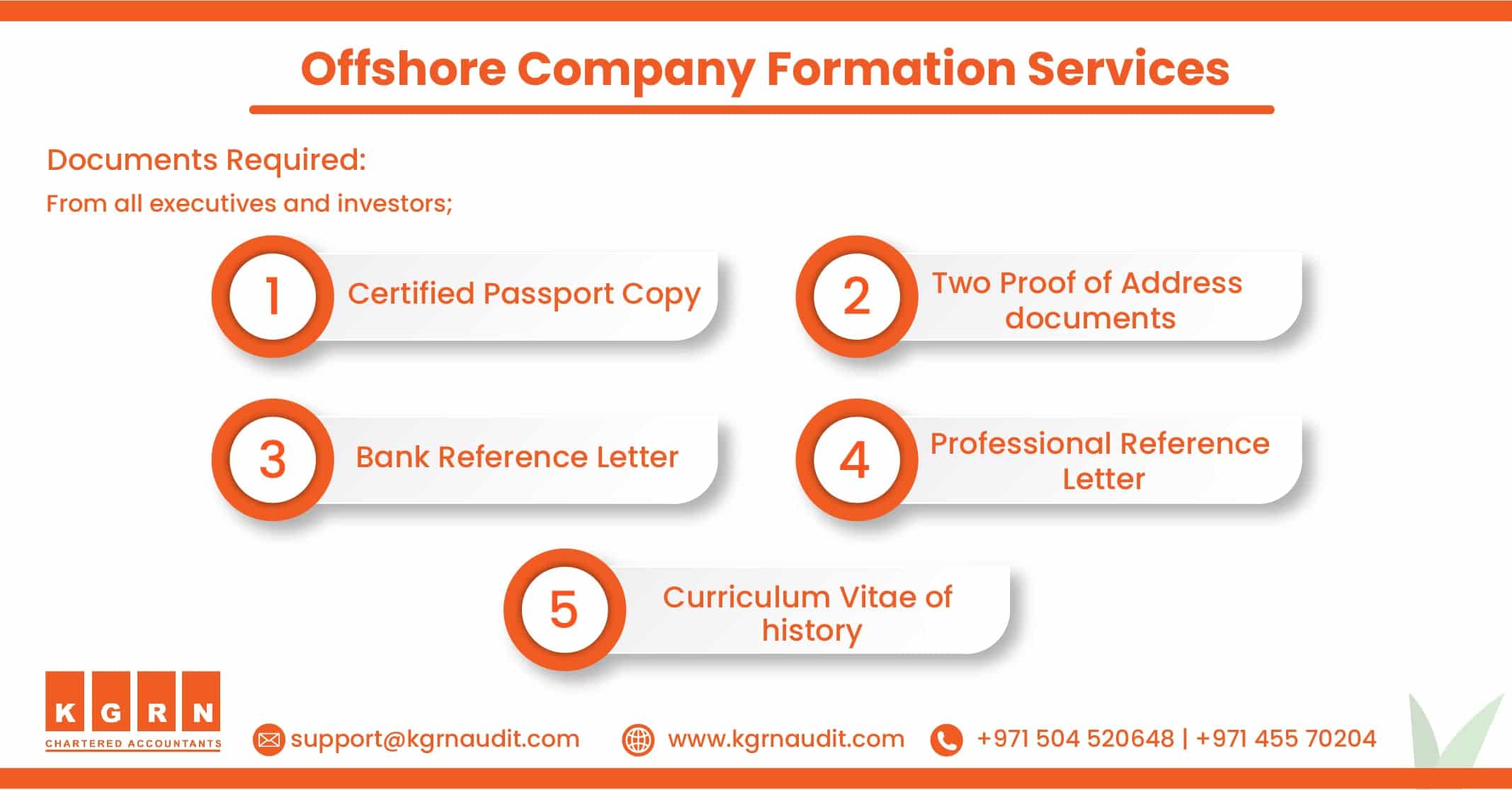Understanding the Refine of Offshore Business Formations: A Detailed Overview
Offshore business formations involve a series of methodical steps that require careful factor to consider. Choosing the best jurisdiction is vital, as it impacts lawful compliance and tax benefits. Following this, one need to select a proper company framework and prepare vital documentation. Each phase offers its own difficulties and details, making it vital to comprehend the process completely. The intricacies of preserving conformity and steering with policies will certainly quickly end up being apparent.
Picking the Right Jurisdiction
When choosing a territory for overseas company development, just how does one identify the most ideal alternative? Different aspects must be thought about to assure optimal benefits. Primarily, prospective service proprietors must evaluate the jurisdiction's reputation and security. A well-regarded location enhances reliability and may draw in investors. In addition, tax obligation policies play a considerable duty; some jurisdictions use beneficial tax obligation rates or exemptions, making them appealing for lasting financial planning.Legal and regulative structures are also crucial. A jurisdiction with straightforward conformity procedures can assist in smoother operations. Additionally, the schedule of expert solutions, such as legal and accounting assistance, can streamline continuous management.Lastly, geographical factors to consider, consisting of time area compatibility and availability, must not be forgotten. By assessing these vital components, business owners can make enlightened choices, selecting the territory that lines up best with their specific business objectives and functional demands.
Comprehending Lawful Demands
Understanding the lawful requirements for offshore firm formation is important for business owners looking for to navigate the intricacies of international business. Each territory has its very own details guidelines and compliance commitments that must be adhered to for an effective arrangement. Key considerations consist of enrollment procedures, capital needs, and continuous reporting tasks. Entrepreneurs need to likewise be conscious of tax implications and any potential double taxes treaties in between their home nation and the overseas jurisdiction.Additionally, it is essential to recognize the regional regulations surrounding company operations, including labor policies and licensing requirements. Failure to adhere to these legal stipulations can lead to charges, consisting of fines or perhaps dissolution of the company. As a result, seeking legal assistance or consulting with a specialist company concentrating on overseas formations can aid assure that all legal requirements are fulfilled, inevitably promoting a smoother facility and operation of the overseas entity.

Selecting Firm Structure
When choosing a company structure for overseas developments, people need to take into consideration numerous kinds readily available, each offering distinct advantages. Legal considerations and conformity demands play a crucial role in figuring out the most suitable option. Additionally, understanding tax obligation implications and benefits can considerably influence the decision-making procedure.
Kinds Of Business Structures
Picking the right company framework is a necessary choice that can greatly influence the operations and tax obligations of an overseas service. There are a number of sorts of business frameworks readily available for consideration, each with its one-of-a-kind advantages and drawbacks. The most common structures consist of limited obligation business (LLCs), which supply responsibility protection and versatility in monitoring; firms, which use strong possession protection and can attract capitalists; and collaborations, which allow for common obligations and profits amongst companions. In addition, single proprietorships are a choice for individuals seeking full control however with personal liability. Understanding these frameworks assists entrepreneur make educated options that align with their objectives and operational requirements while optimizing tax obligation effectiveness.
Legal Factors To Consider and Compliance
Exactly how can business owners ensure they meet legal needs while choosing an offshore business structure? This includes recognizing the specific guidelines and compliance commitments associated with numerous jurisdictions. Organization proprietors need to carry out complete research to identify the legal effects of various firm kinds, such as minimal obligation companies (LLCs) or worldwide organization firms (IBCs) Consulting with lawful specialists experienced in overseas formations is important to browse complex legislations. Furthermore, they have to determine the selected framework aligns with their company objectives and functional needs. Compliance with regional regulations, including registration, reporting, and governance demands, is important to prevent lawful complications. Proper paperwork, openness, and adherence to international standards even more enhance the legitimacy and sustainability of the offshore entity.
Tax Implications and Benefits
When choosing an offshore business structure, organization proprietors commonly run into considerable tax implications and advantages. The option of structure-- whether a restricted obligation company, partnership, or firm-- straight affects tax commitments. Some jurisdictions supply favorable tax obligation prices or exceptions for particular types of entities, which can decrease general tax responsibility. Additionally, offshore firms may give possibilities for tax obligation deferral, allowing profits to expand without immediate taxation. However, it is important to comprehend the regional tax obligation guidelines and any type of international tax treaties that might apply. Effectively structuring the firm can likewise facilitate property defense and income diversification, making it important for entrepreneur to consult with tax obligation experts to navigate these intricacies successfully.
Preparing Required Paperwork
An extensive set of records is vital for the successful formation of an overseas company. These documents normally include a memorandum and short articles of association, which detail the company's framework and guidelines. Identification files for all investors and supervisors are also required, normally containing a ticket or national ID. Proof of address, such as energy bills or bank declarations, is needed to verify the identities of these individuals.Additionally, a detailed company strategy may be asked for to clear up the desired activities and the functional structure of the company - offshore company formations. Some jurisdictions might need a statement of valuable possession, revealing real owners behind the company. It is essential to ensure that all paperwork abides by local laws and laws to prevent hold-ups. Appropriate prep work of these papers not just promotes a smoother formation process but additionally lays a strong structure for the company's future procedures
Opening Up a Checking Account
After preparing the needed documentation for the overseas business, the next action entails opening up a savings account to help with economic operations. This account is crucial for handling funds, carrying out purchases, and guaranteeing smooth service operations.Selecting an appropriate financial institution is vital; factors such as the bank's track record, charges, and solutions need to be very carefully considered. Some financial institutions may require extra paperwork, consisting of recognition, evidence of address, and service strategies. It is a good idea to pick a bank that comprehends the unique demands of overseas companies.Once the selection is made, the account opening process typically involves sending the called for documents and going through a due persistance procedure. This may consist of history checks to adhere to global guidelines. After approval, the overseas business can access its financial solutions, allowing it to operate efficiently in the worldwide market and handle its economic activities with ease.
Keeping Compliance and Reporting Commitments

While developing an offshore firm provides various advantages, maintaining conformity with international and regional guidelines is vital for its lasting success. Companies need to be alert in adhering to the legal frameworks of the jurisdictions in which they operate. This includes prompt entry of yearly returns, financial declarations, and any type of necessary tax filings.In many cases, offshore entities are subject to anti-money laundering (AML) and know-your-customer (KYC) regulations. Non-compliance can bring about severe penalties, consisting of penalties and criminal fees. Furthermore, engaging a regional compliance officer or lawful consultant can help browse the complex regulatory landscape.Companies should additionally remain informed concerning modifications in legislation that might impact their procedures. Regular audits and testimonials of interior processes can assure adherence to reporting responsibilities. Inevitably, maintaining conformity not just secures the firm's track record however also boosts its operational performance and sustainability in the competitive international click for more market.
Often Asked Concerns
What Are the Costs Associated With Offshore Company Development?

The length of time Does the Offshore Firm Development Process Take?
The overseas business formation procedure usually spans from a couple of days to numerous weeks. Aspects influencing this timeline include territory guidelines, documents demands, and the efficiency of solution carriers associated with the formation process.
Can I Run My Company in Multiple Nations?
Operating a company in numerous nations is feasible, gave one follow each territory's guidelines. International legislations, tax obligations, and neighborhood operational needs have to all be taken into consideration to guarantee effective cross-border service activities.
Are There Tax Obligation Advantages for Offshore Business?
The question of tax obligation benefits for overseas firms usually develops. Many territories offer reduced tax prices, exemptions, or rewards, which can result in substantial savings. Guidelines and conformity needs must likewise be meticulously thought about.
What Happens if I Do Not Abide With Regulations?
Non-compliance with policies can lead to extreme effects, consisting of hefty fines, possible criminal costs, and the dissolution of the firm. Regulatory authorities may also initiate investigations, drastically affecting the firm's reputation and operational capabilities. Choosing the right company structure is a vital decision that can substantially influence the procedures and tax obligation commitments of an overseas organization. Organization proprietors must carry out extensive study to recognize the legal implications of different company kinds, such as minimal responsibility firms (LLCs) or worldwide service firms (IBCs) Business owners often run into substantial tax implications and benefits when choosing an offshore company framework. The expenses involved in overseas business formation typically consist of registration fees, lawful costs, annual upkeep fees, and Discover More Here potential tax obligations. The look at this site question of tax obligation benefits for overseas firms often develops.